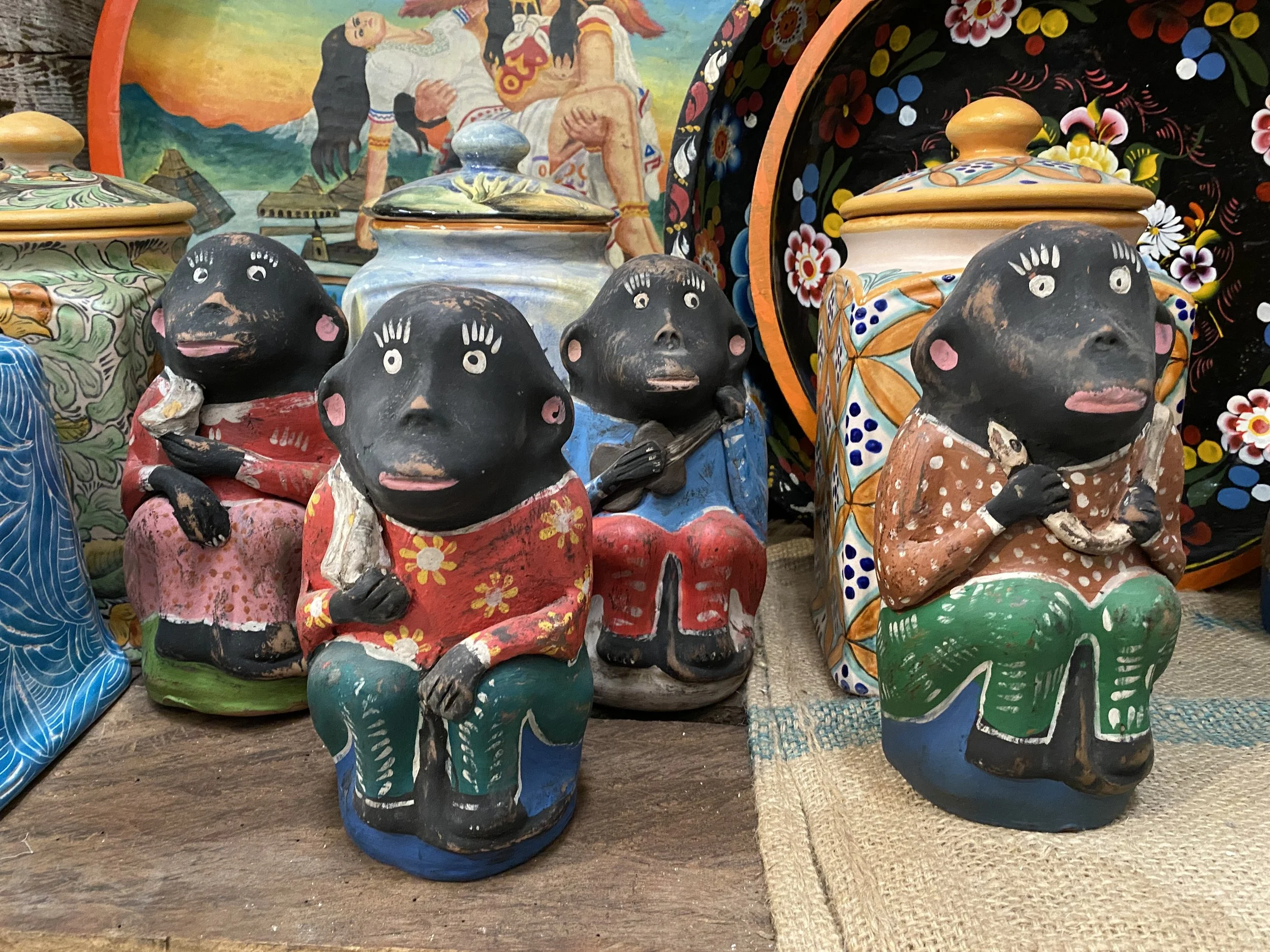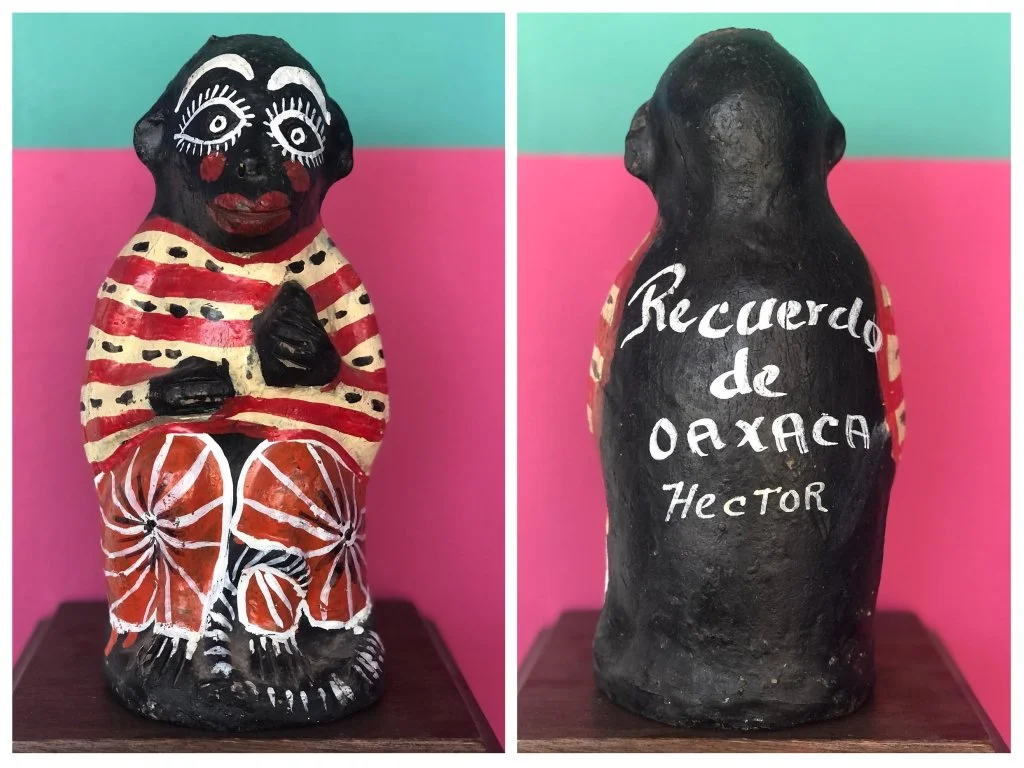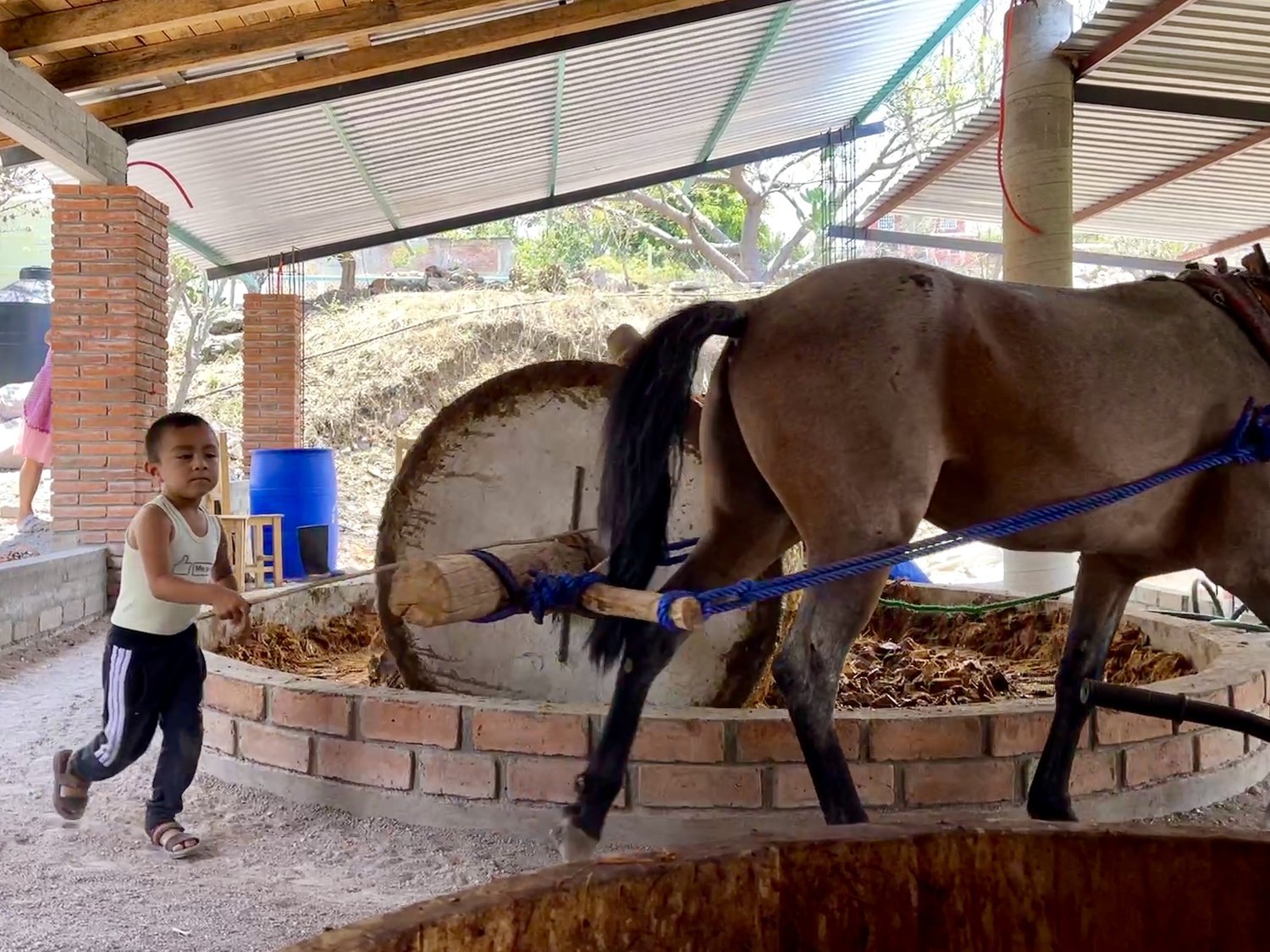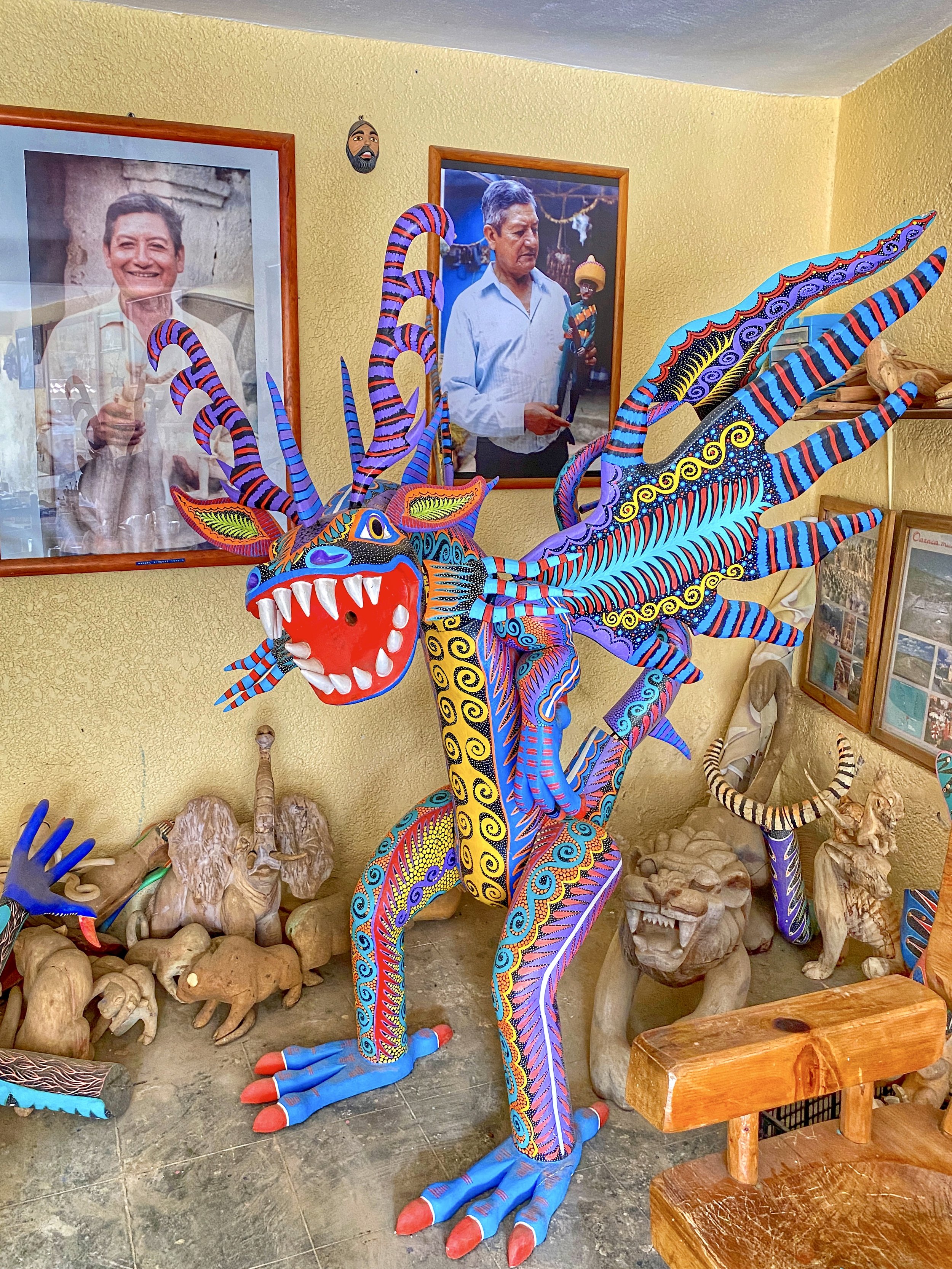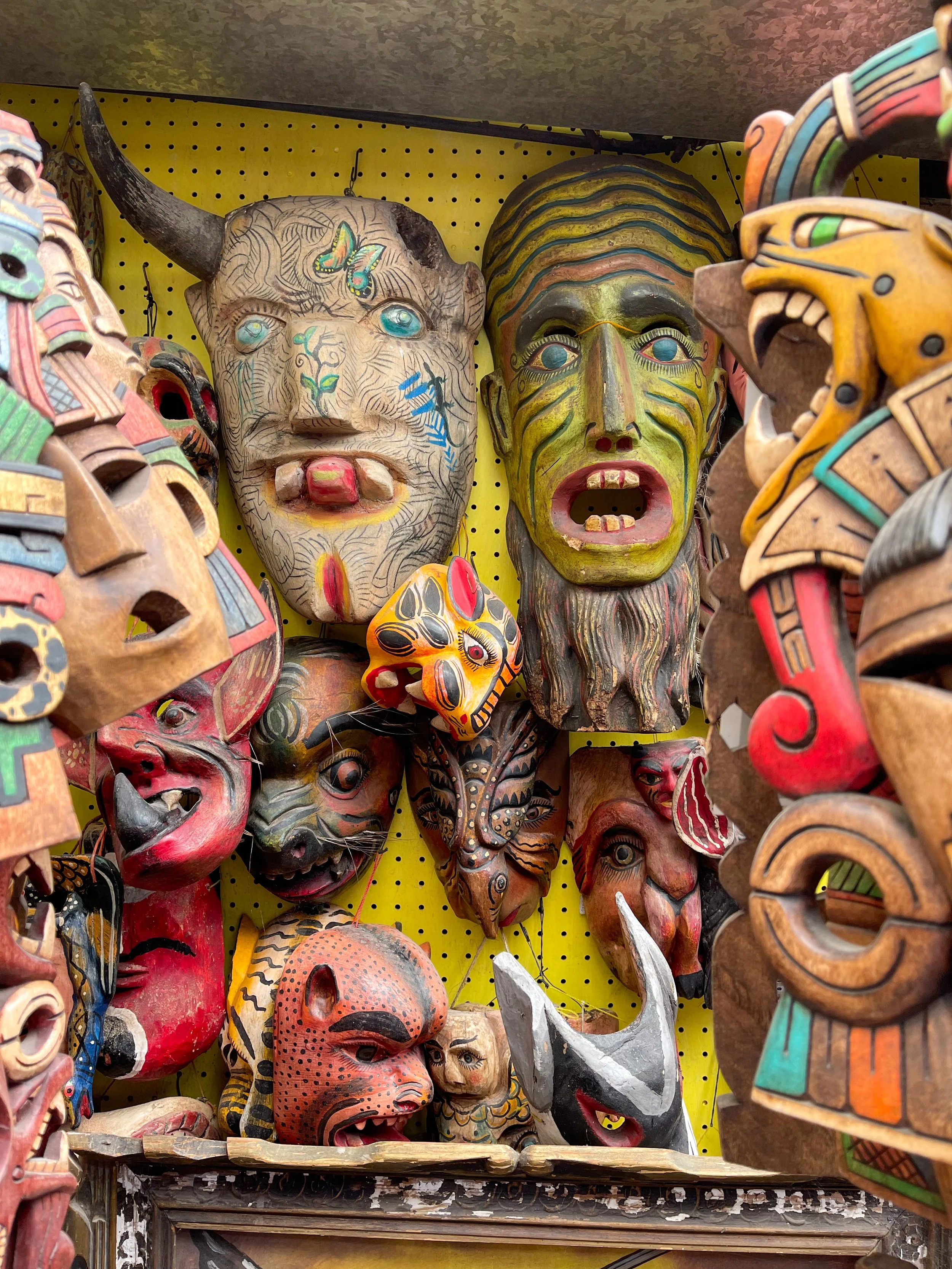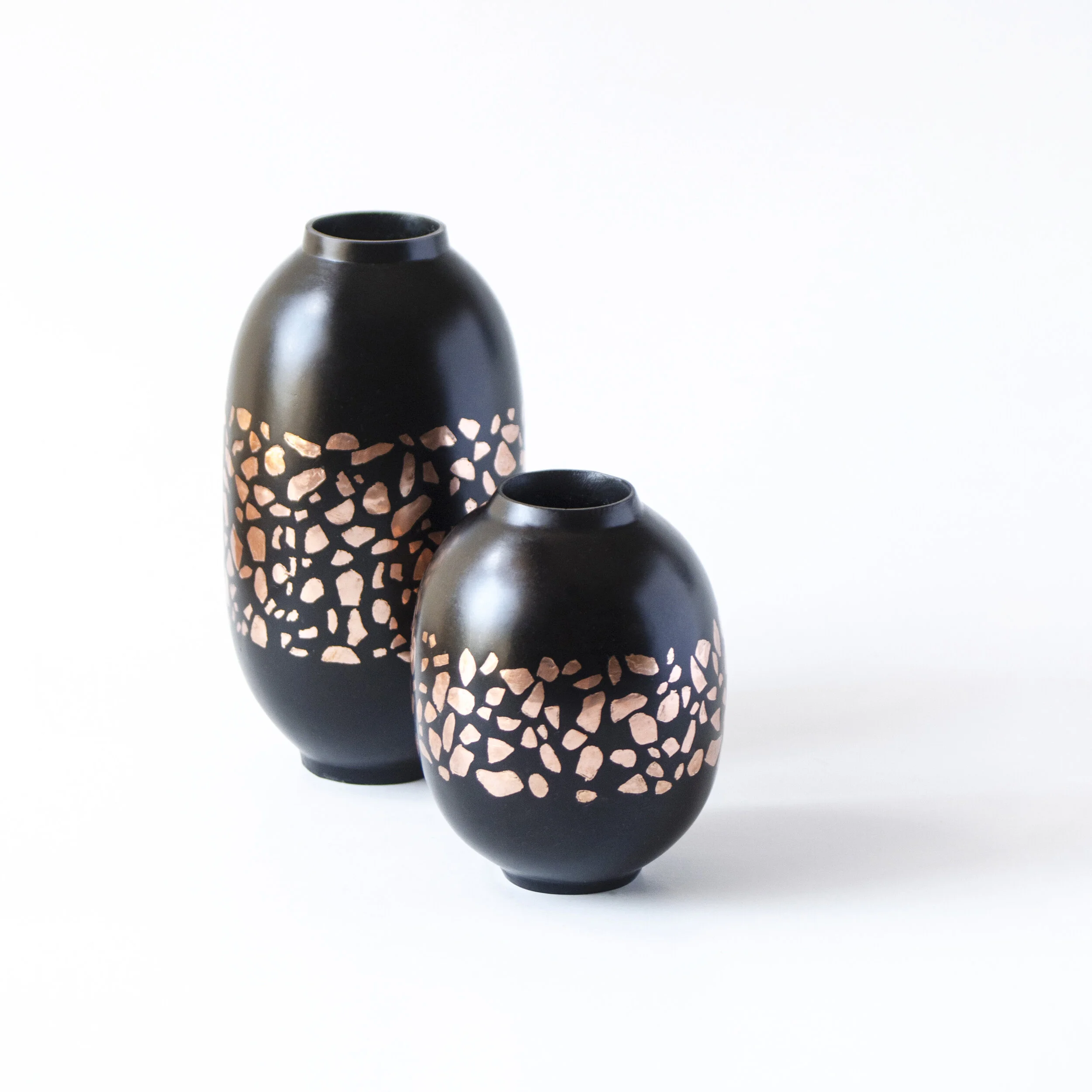These cheeky monkeys are used to market and store mezcal. We investigate their origins and where to buy changos mezcaleros.
What’s more fun than a barrel of monkeys?! A chango filled with mezcal!
Monkeys. They’re cute but erratic — just how I imagine myself when I’ve had too much to drink. So it’s no surprise that these primates have come to symbolize drunkenness in Mexico. You could say that monkeys are the spirit animal of mezcal.
Some changos were given as souvenir gifts, as you can see from the hand-painted one above.
What is a chango mezcalero?
These monkey-shaped clay receptacles are really just a clever marketing scheme used to sell mezcal. They hold a liter or so of the potent potable Oaxaca is known for. Most changos are brightly painted and depict monkeys in goofy positions — covering an eye, clutching bananas, holding a snake, playing the guitar. Some were marked, “Recuerdo de Oaxaca (Souvenir of Oaxaca)” or had the name of a couple to be given as a wedding present.
Juventino Nieto (far right) with Rosa Real and their son Valente stand among their pottery creations. Don Juventino might have been the one to create the first chango mezcalero.
Who created the first chango mezcalero?
It’s surprisingly difficult to find out much about these whimsical folk art containers, and there’s a controversy about who invented them. One family from a village outside of Oaxaca insists it was their forebear, Marcelo Simón Galán, who came up with the idea, while another family says it was their ancestor, Juventino Nieto, who did so. Both men are dead, so they can’t even duke it out among themselves.
(Incidentally, Nieto was married to the late Rosa Real, who’s credited with devising the black pottery technique that Oaxaca is now famous for.)
There are claims that other artisans from other parts of Mexico came up with changos as well. I’ll be a monkey’s uncle — we may never know who actually invented these primate pitchers.
These ceramic containers are created using a mold like this one.
When were changos first made?
Some say changos mezcaleros date back to the mid-1800s. But a mold used to create changos by Nieto in the village of San Bartolo Coyotepec has the date 1938 written on it.
These fun monkey-shaped containers were used to market mezcal. With the liquor’s newfound popularity, perhaps changos will make a comeback!
Are changos mezcaleros still made?
Yes. There are at least three workshops in the pueblo of Santiago Matatlán that have produced changos mezcaleros for decades. Makes sense: Matatlán is home to the highest number of family-run mezcal distilleries, or palenques.
Where can you buy changos?
There’s always the internet, of course, with sites like eBay offering vintage changos mezcaleros. But despite there being a good chance the mezcal containers originated in Oaxaca, we couldn’t find any there. It wasn’t until we visited San Miguel de Allende that we came across a couple stores that sold them: Origenes Antigüedades Populares across from the Centro Cultural Ignacio Ramírez “El Nigromante” and Casa Michoacana, a folk art emporium on Calzada de la Aurora.
Duke and I were so excited to see changos for sale, we of course had to bring one home with us. We got this cheeky monkey for just under 2,000 pesos, or about $100. Not sure if we’ll ever fill him with mezcal, though. –Wally

